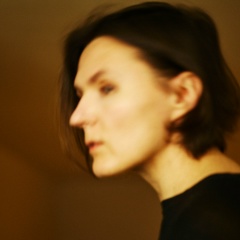Рубрика занимательная #математика, а точнее — теория вероятностей (и теория чисел). Эта часть математики, которую как правило не изучают в школе, на самом деле гораздо полезнее в жизни, чем, к примеру, такие элементы школьной программы, как логарифмы, интегралы, да даже квадратные уравнения.
Дело в том, что в жизни постоянно встаёт выбор между несколькими вариантами действий, и почти никогда вероятность успеха не бывает 100%. А иногда нужно совершить и вовсе серию действий. В простейшем случае, если вам известна вероятность успеха в каждом отдельном случае, вероятность общего 100%-го успеха будет вычисляться как произведением вероятностей.
Скажем, вы подбрасываете монетку, и хотите каждый раз получить орла. Даже далёкий от математики человек понимает, что вероятность получить орла - 50%, то есть ½, иначе записываемая как 0.5. Вероятность два раза подряд выбросить орла — ½*½ = ¼. Вероятность сделать это 3 раза подряд — ½*½*½ = ⅛, то есть 12.5%, и так далее.
А теперь представим, что мы играем в лотерею, в которой надо 3 раза подряд угадать число от 1 до 1000. В принципе, один к тысяче - шансы невеликие, но вполне реальные. Если такое число будут угадывать, скажем, 50 тысяч зрителей под завязку забитого стадиона «Лужники», то в среднем 50 человек угадают это число — вполне реальная удача.
Но ведь у нас 3 числа в билете! Вероятность угадать и первое, и второе число — 1 / (1000*1000), то есть уже 1 из 1 000 000. Однако у нас уже есть 50 победителей, угадавших первое число. На момент угадывания второго числа вероятность дать правильный ответ - те же самые 1 из 1000, а вовсе не 1 из 1 000 000. Удача, можно сказать, уже почти у вас в руках.
Допустим, кому-то посчастливилось угадать и второе число. Вероятность того, что этот человек получит главный приз (скажем, миллион долларов) теперь составляет одновременно 1 из 1000 и 1 из 1 000 000 000, то есть один из миллиарда! Вот так #парадокс.
Точнее, вероятность получить главный приз составляла 1 из миллиарда на начало проведения лотереи, а на момент угадывания третьего числа — всего лишь 1 из тысячи. Совершенно очевидно, что быть тем самым счастливчиком из миллиарда — это вероятность на грани фантастики, а вероятность стать счастливчиком из тысячи — вполне обыденная и повседневная вещь. И в некотором смысле путь к невероятному и фантастическому лежит через серию реальных и земных шагов.
Назовите мне теперь математику скучной :-E
Дело в том, что в жизни постоянно встаёт выбор между несколькими вариантами действий, и почти никогда вероятность успеха не бывает 100%. А иногда нужно совершить и вовсе серию действий. В простейшем случае, если вам известна вероятность успеха в каждом отдельном случае, вероятность общего 100%-го успеха будет вычисляться как произведением вероятностей.
Скажем, вы подбрасываете монетку, и хотите каждый раз получить орла. Даже далёкий от математики человек понимает, что вероятность получить орла - 50%, то есть ½, иначе записываемая как 0.5. Вероятность два раза подряд выбросить орла — ½*½ = ¼. Вероятность сделать это 3 раза подряд — ½*½*½ = ⅛, то есть 12.5%, и так далее.
А теперь представим, что мы играем в лотерею, в которой надо 3 раза подряд угадать число от 1 до 1000. В принципе, один к тысяче - шансы невеликие, но вполне реальные. Если такое число будут угадывать, скажем, 50 тысяч зрителей под завязку забитого стадиона «Лужники», то в среднем 50 человек угадают это число — вполне реальная удача.
Но ведь у нас 3 числа в билете! Вероятность угадать и первое, и второе число — 1 / (1000*1000), то есть уже 1 из 1 000 000. Однако у нас уже есть 50 победителей, угадавших первое число. На момент угадывания второго числа вероятность дать правильный ответ - те же самые 1 из 1000, а вовсе не 1 из 1 000 000. Удача, можно сказать, уже почти у вас в руках.
Допустим, кому-то посчастливилось угадать и второе число. Вероятность того, что этот человек получит главный приз (скажем, миллион долларов) теперь составляет одновременно 1 из 1000 и 1 из 1 000 000 000, то есть один из миллиарда! Вот так #парадокс.
Точнее, вероятность получить главный приз составляла 1 из миллиарда на начало проведения лотереи, а на момент угадывания третьего числа — всего лишь 1 из тысячи. Совершенно очевидно, что быть тем самым счастливчиком из миллиарда — это вероятность на грани фантастики, а вероятность стать счастливчиком из тысячи — вполне обыденная и повседневная вещь. И в некотором смысле путь к невероятному и фантастическому лежит через серию реальных и земных шагов.
Назовите мне теперь математику скучной :-E
The heading is entertaining # mathematics, or rather, probability theory (and number theory). This part of mathematics, which is usually not taught in school, is actually much more useful in life than, for example, such elements of the school curriculum as logarithms, integrals, and even quadratic equations.
The fact is that in life there is always a choice between several options for action, and almost never the probability of success is 100%. And sometimes you need to complete a series of actions. In the simplest case, if you know the probability of success in each individual case, the probability of an overall 100% success will be calculated as the product of the probabilities.
Let's say you flip a coin and you want heads every time. Even a person far from mathematics understands that the probability of getting heads is 50%, that is, ½, otherwise written as 0.5. The probability of throwing heads twice in a row is ½ * ½ = ¼. The probability of doing this 3 times in a row is ½ * ½ * ½ = ⅛, that is, 12.5%, and so on.
Now let's imagine that we are playing a lottery in which we have to guess a number from 1 to 1000 3 times in a row. In principle, one in a thousand - the chances are small, but quite real. If such a number will be guessed by, say, 50 thousand spectators to the eyeballs of the packed Luzhniki stadium, then on average 50 people will guess this number - a very real success.
But we have 3 numbers on the ticket! The probability of guessing both the first and second numbers is 1 / (1000 * 1000), that is, already 1 out of 1,000,000. However, we already have 50 winners who guessed the first number. At the time of guessing the second number, the probability of giving the correct answer is the same 1 in 1,000, and not at all 1 in 1,000,000. Luck, one might say, is already almost in your hands.
Let's say someone is lucky enough to guess the second number. The likelihood that this person will receive the main prize (say, a million dollars) is now both 1 in 1,000 and 1 in 1,000,000,000, that is, one in a billion! That's the # paradox.
More precisely, the probability of getting the main prize was 1 in a billion at the beginning of the lottery, and at the time of guessing the third number - only 1 in a thousand. It is quite obvious that being the lucky one out of a billion is a probability on the verge of fantasy, and the probability of becoming the lucky one out of a thousand is quite an ordinary and everyday thing. And in a sense, the path to the incredible and the fantastic is through a series of real and earthly steps.
Call me boring math now: -E
The fact is that in life there is always a choice between several options for action, and almost never the probability of success is 100%. And sometimes you need to complete a series of actions. In the simplest case, if you know the probability of success in each individual case, the probability of an overall 100% success will be calculated as the product of the probabilities.
Let's say you flip a coin and you want heads every time. Even a person far from mathematics understands that the probability of getting heads is 50%, that is, ½, otherwise written as 0.5. The probability of throwing heads twice in a row is ½ * ½ = ¼. The probability of doing this 3 times in a row is ½ * ½ * ½ = ⅛, that is, 12.5%, and so on.
Now let's imagine that we are playing a lottery in which we have to guess a number from 1 to 1000 3 times in a row. In principle, one in a thousand - the chances are small, but quite real. If such a number will be guessed by, say, 50 thousand spectators to the eyeballs of the packed Luzhniki stadium, then on average 50 people will guess this number - a very real success.
But we have 3 numbers on the ticket! The probability of guessing both the first and second numbers is 1 / (1000 * 1000), that is, already 1 out of 1,000,000. However, we already have 50 winners who guessed the first number. At the time of guessing the second number, the probability of giving the correct answer is the same 1 in 1,000, and not at all 1 in 1,000,000. Luck, one might say, is already almost in your hands.
Let's say someone is lucky enough to guess the second number. The likelihood that this person will receive the main prize (say, a million dollars) is now both 1 in 1,000 and 1 in 1,000,000,000, that is, one in a billion! That's the # paradox.
More precisely, the probability of getting the main prize was 1 in a billion at the beginning of the lottery, and at the time of guessing the third number - only 1 in a thousand. It is quite obvious that being the lucky one out of a billion is a probability on the verge of fantasy, and the probability of becoming the lucky one out of a thousand is quite an ordinary and everyday thing. And in a sense, the path to the incredible and the fantastic is through a series of real and earthly steps.
Call me boring math now: -E

У записи 3 лайков,
0 репостов.
0 репостов.
Эту запись оставил(а) на своей стене Алёша Филиппенко
























